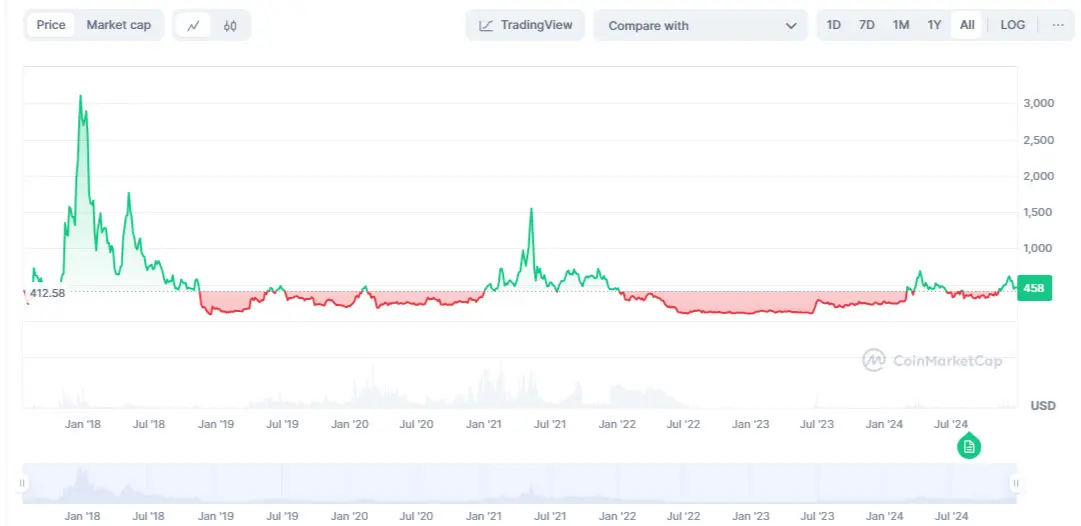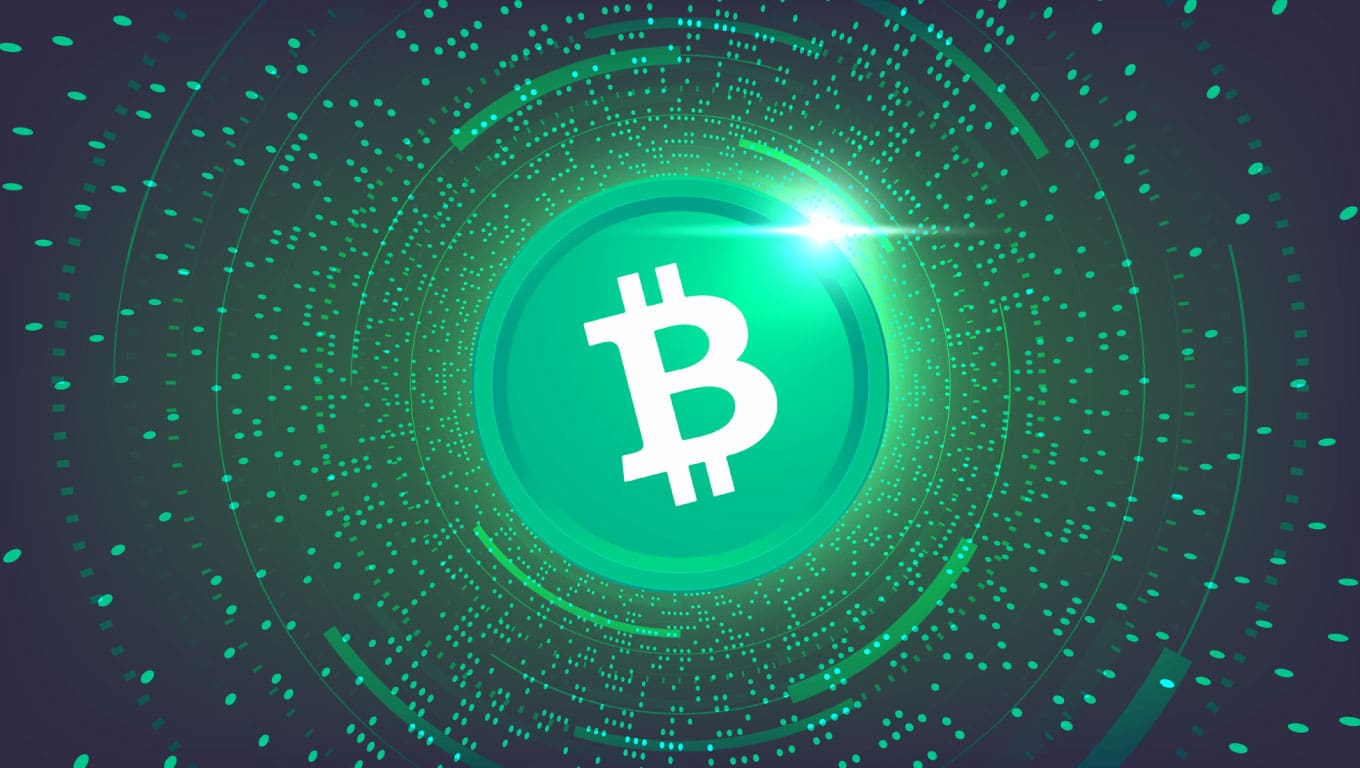What is the difference between bitcoin and bitcoin cash?
Bitcoin Cash is one of the best known names in the vast world of cryptocurrencies. For those already familiar with the subject, its name is not confusing. However, those who have recently entered the industry may struggle to understand what the difference between Bitcoin and Bitcoin Cash is. So let’s clarify, and then delve into the topic of the article.
Let us start by saying that Bitcoin is both a network and a cryptocurrency.
Specifically, with a capital B we identify the Bitcoin blockchain, the first ever structure of its kind, proposed and created by a mysterious character known as Satoshi Nakamoto.
If, on the other hand, the letter B is lower case we are dealing with the related cryptocurrency, number 1 by market capitalization, so famous that several laymen see the term bitcoin as synonymous with cryptocurrency.
This blockchain (and many others) is a decentralized environment in which the community makes the decisions about its future. When everyone agrees, no problem arises. When, on the other hand, insurmountable disagreements arise, it may happen that the project takes two opposite directions: one will remain the original, free of changes; the other will instead implement the proposals that have caused so much discussion and bickering among participants. And that is precisely where Bitcoin Cash comes in.
Let’s go back in time, to August 2017 to be precise.
The BTC community is in turmoil; the reason? There is deep disagreement over a technical issue, namely the possibility of increasing the size of blocks. We will not go into this, otherwise we would get too far off the main topic. Suffice it for us to know that each block in the chain contains a certain number of transactions; making it larger would allow increasing the maximum number of transactions per second, but other issues may arise.
In the discussion, one front of developers does not want to make such a change, sticking with the original idea. Instead, the other group wants to increase the block size, so as to improve network performance. The latter is the “club” of Bitcoin Cash.
Not finding an agreement, the solution was only one: to proceed with a hard fork that would split the pre-existing blockchain into two: one named Bitcoin, just the one we know today; the other named Bitcoin Cash.
So today the two networks coexist in the crypto landscape, but they have nothing to do with each other (the algorithms are in fact different). Bitcoin’s block size is 1MB, while that of Bitcoin Cash has reached 32MB. Despite its better performance, BCH has never been able to challenge BTC.
Index
What is Bitcoin Cash?
Bitcoin Cash is both a cryptocurrency and a blockchain structure, through which an alternative payment circuit was created. To be precise, the official documentation of the project describes it as a kind of peer-to-peer electronic money, expendable via the Internet.
As we said, the whole structure is decentralized and supported by mining (Bitcoin Cash mining) and Proof-of-Work consensus algorithm, which guarantees a good degree of security.
The goal of being a payment circuit is behind the fork that led to the birth of BCH and the size of each individual block. According to members of this community, Bitcoin Cash represents what Satoshi had in mind from the beginning, precisely because it can process many more transactions than Bitcoin.
BCH can be used as a coin to buy products or services, as long as clearly the seller is willing to accept it. In addition, the coin can be purchased with a view to investment (we will return to this point later).
"Bitcoin Cash is both a cryptocurrency and a blockchain structure"
BCH tokenomics
Talking about BCH’s tokenomics is easy because they are identical to those of BTC. This should come as no surprise: after all, these are two related coins with a shared past.
Thus, the maximum supply is 21 million, while the current circulating amount is slightly higher than that of BTC. Exactly how many Bitcoin Cash are there? At the time of writing, the number is around 19.8 million. The discrepancy is due to problems in the production of the blocks, which occurred mainly at the launch of the network.
The block time is also identical (10 minutes), as is the timing related to halving: every 210,000 blocks, or about four years. Also shared is the amount of coins released as block rewards: 3.125.
Bitcoin Cash, however, has the big structural difference we have already discussed: the block size of many times larger than what we find in the “sister” chain.
Below is TradingView ‘s real-time chart about bitcoin cash price (stablecoin pegged to the U.S. dollar in a 1:1 ratio).
How do you buy bitcoin cash?
BCH is a fairly well-known currency, so it is possible to buy it at several of the most widely used exchanges.
Among the hottest names through which to buy Bitcoin Cash we point out Binance, Coinbase (also Pro version ), Bybit, Bitget and Crypto.com, all proven and reliable realities. In any case, utmost care: if possible, we use CEXs only to buy and sell cryptocurrencies and not to hold them. Much better to have your own wallet and, even safer, rely on a hardware device such as Ledger or Trezor.
Among Bitcoin Cash Wallets we point out Exodus, an application for PC and Mac that can support different networks, very convenient and secure.
"You can buy BCH on many centralized exchanges"
Should I invest in bitcoin cash?
We come to the usual dilemma: is it worth investing in this coin or better to look at something else? The answer is personal and we can limit ourselves only to observing the facts. We are not in a position to make Bitcoin Cash predictions.
First of all, let’s do a nice fundamental analysis, so that we have everything we need to understand potential and critical points of the project. Here are some insights.
Bitcoin Cash is a fairly long-lived entity, with a secure but underperforming consensus algorithm at its base compared to other solutions (see, for example, Proof-of-Stake).
The much larger blocks compared to Bitcoin are a no small strength, although there are two observations to consider:
- Bitcoin can rely on the Lightining Network, a structure that can lower gas fees and wait times;
- The difficulty of each BCH block is dynamically adjusted; this causes periodic difficulties in properly processing the blocks themselves, especially during periods of high volatility.
In addition to the fundamentals, we must then take a look at pricing:

This chart, from CoinMarketCap, illustrates BCH’s performance from launch through fall 2023.
In 2018, the coin experienced a fantastic period that brought it close to $4,000 in value. After that, just as quickly, the price collapsed even below $100. After a 2021 partial recovery, the bear market dealt BCH another nasty blow.
From this quick glance we can see how the long-term trend is decidedly negative, despite a timid attempt at recovery during 2024 (far from the glories of yesteryear). If we combine this with a significantly lower adoption than bitcoin (even though it is still one of the most capitalized cryptos), it therefore seems that Bitcoin Cash is not an ideal choice for an investment. However, if personal evaluations lead one to believe that it has the tools to stand out and evolve in the future, the argument changes completely.
In short, the picture differs from person to person. Regardless of one’s orientation, we recommend that one should always be careful and avoid rash and uncalculated actions.


